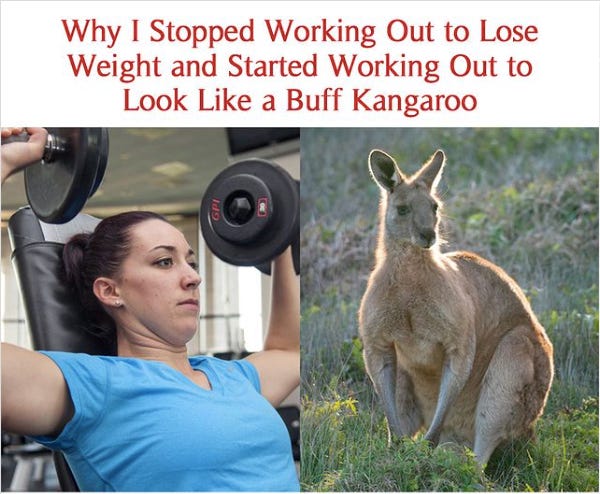What's Good?
The week in sports and food technology news
It's less than a month until I officially launch this newsletter, and I do feel like I'm getting back into the groove of researching and writing.
It's fascinating (and depressing) to watch "the algorithms" change as my online search/click habits have changed. No longer am I being shown stories about education technology, thank goodness, but it's clear a new (advertising) profile isn't fully formed on me yet. You can see these things play out on sites like Instagram, where, after you watch one video on, say, cute otters, your feed is full of the little critters for a day or two. And then, once you've failed to click on the proffered otter content, the algorithm tries suggesting other water mammals — perhaps you'd like to look at some seal videos? No? How about raccoons? Okay, so perhaps not mammals then — how about birds? Oh, you like pigeons? You once clicked on a photo of a pigeon in Trafalgar Square, so you must want more London content — here is a steady stream of cheesemonger images. You're sure to click on that, particularly as you once liked a photo of your cousin at a cheese-tasting event, right?
It's all a good reminder, that despite the ongoing narrative that AI is poised to take all our jobs / make all our decisions / destroy life as we know it, the technology isn't actually that amazing. It's just not that good. That doesn't mean we shouldn't be vigilant about its development, particularly when, as we see with the Writers Guild of America strike, corporations are clearly very keen to adopt any new technology they think will help them to axe jobs and maximize profits.
Now that I'm writing about food and fitness and technology, I'm seeing all sorts of truly eyebrow-raising content online — stuff I wasn't ever the "target market" for before. (For example: "A woman who pooped her pants halfway through a marathon and ran with it in her shorts until she crossed the finish line achieved a personal record.") There's a lot of mis- and disinformation in health influencer circles, for sure. And there's a lot of stories that already feel like they're written by robots — of course, that's also part of this larger ChatGPT push. It's not so much that robots are more capable than humans; it's that humans are being reduced to robots.
One of the things that Hack Education was best known for was my end-of-year reviews of the various trends (and desperate storytelling in the hopes of making something a trend) in ed-tech. It's too soon for me to be able to say what these are in health tech, but this weekly round-up of the news is one of the things I do to get me there. If it feels like this is just a long list of bullshit, dear reader, that’s because it is.
This week in food news: "Egg prices are crashing. Here’s why." "Millennials and Gen Z’s rebellion against their parents’ rules is spawning a $181 billion industry that makes everything into a snack." "MSG Is Finally Getting Its Revenge." The Food Historian chronicles how Mr. Peanut went to war. The Washington Post says it’s okay to ignore food expiration dates. Oscar Mayer is renaming its hot dog car the “Frankmobile,” because it’s 2023 and while Americans love their meat, we still can’t handle the word “wiener.”
This week in sports news: "How Women’s Swimming Got So Transphobic." The history of the baseball cap. Oakland has a new soccer team, and I am here for it.
In other fitness news: "Arnold Schwarzenegger recommends 2 total-body exercises for an effective 15-minute workout." For me, it's the "summer of swole," as I'm taking some time off from running. (Well not "off" entirely) to focus on my weightlifting. My goal is still to out-deadlift Adele. And as Arnold says, the deadlift is a very effective "total-body exercise."

Elsewhere on Substack, don't miss reading Anne Helen Peterson on grief.
Yours in struggle,
~Audrey





